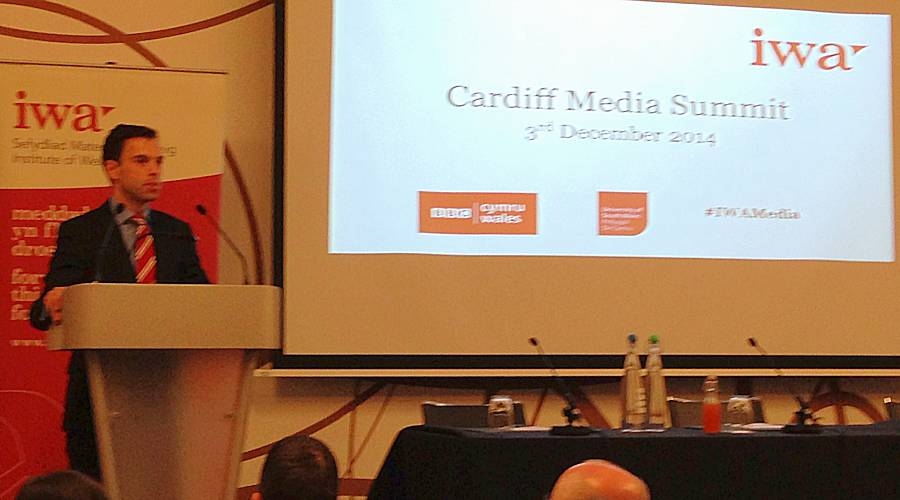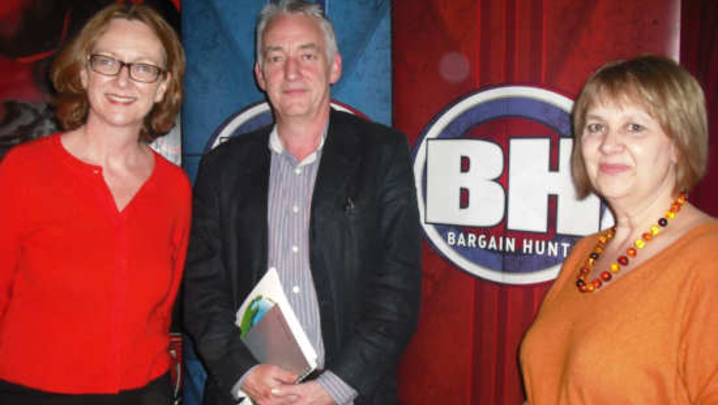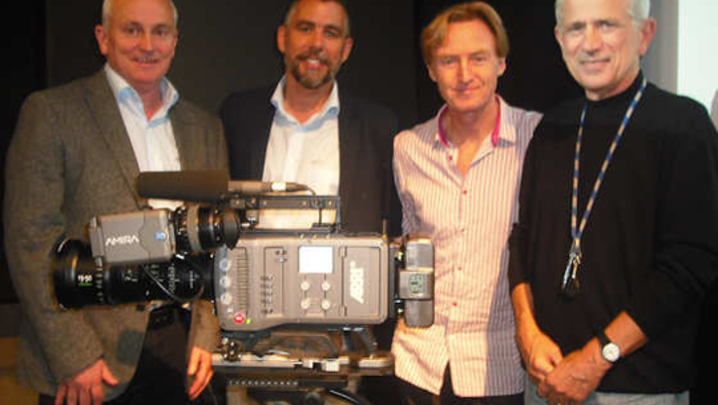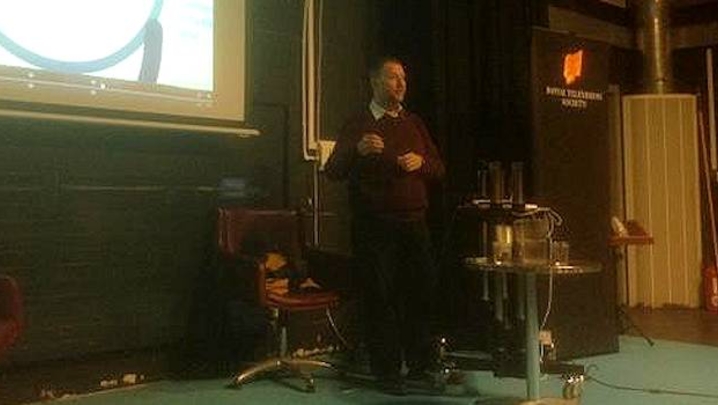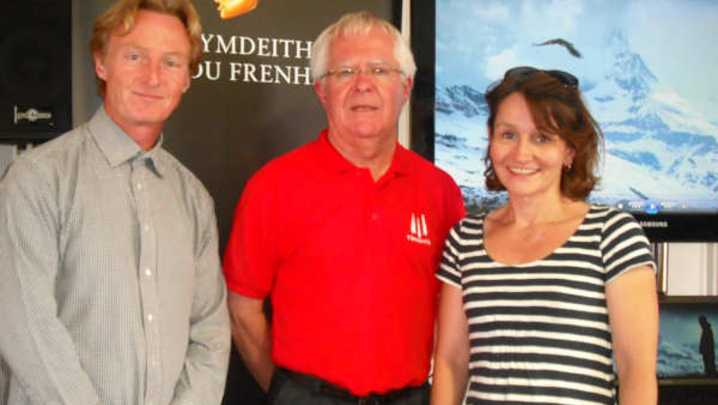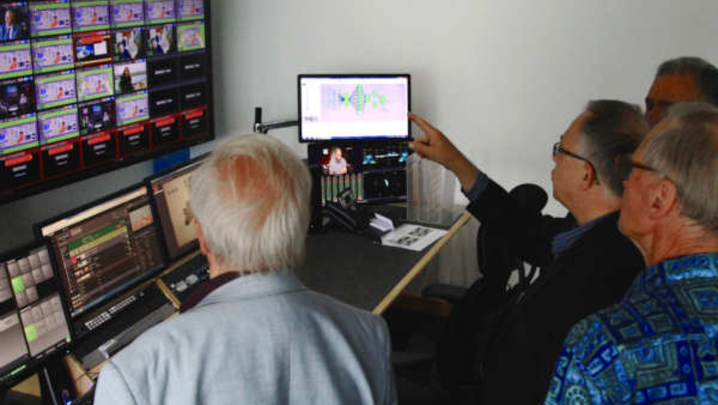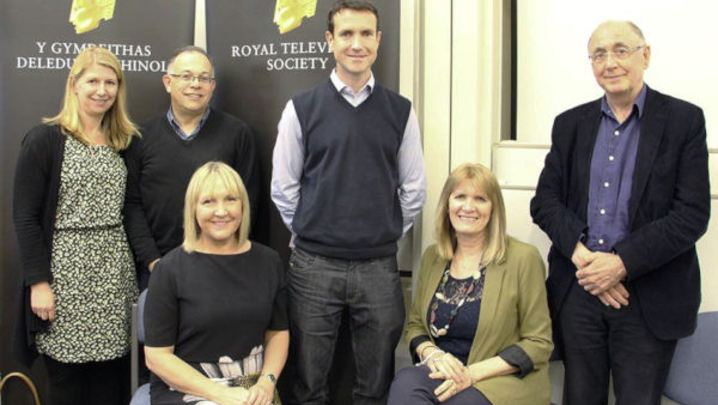Institute of Welsh Affairs Media Summit
Radisson Blu Hotel, Cardiff, 3 December 2014
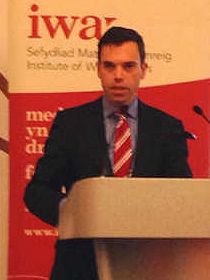 In his opening address, Ken Skates (right and above), Deputy Minister for Culture in the Welsh Government, stated that, "it is unfortunate that BBC Cymru Wales no longer produces any English language drama or comedy specifically for Welsh audiences - especially given its enhanced reputation for high-end TV productions, in the UK and internationally, thanks to the success of Doctor Who, Casualty and Wizards & Aliens, amongst others". The event, held in partnership with BBC Cymru Wales, examined the rapidly changing environment in broadcasting which poses challenges, and opportunities to the thriving sector in Wales. Skates told the packed conference that the Welsh Government does not want responsibility for broadcasting devolved to Wales following the Scottish referendum, but any new settlement needs to reflect the changing nature of the UK.
In his opening address, Ken Skates (right and above), Deputy Minister for Culture in the Welsh Government, stated that, "it is unfortunate that BBC Cymru Wales no longer produces any English language drama or comedy specifically for Welsh audiences - especially given its enhanced reputation for high-end TV productions, in the UK and internationally, thanks to the success of Doctor Who, Casualty and Wizards & Aliens, amongst others". The event, held in partnership with BBC Cymru Wales, examined the rapidly changing environment in broadcasting which poses challenges, and opportunities to the thriving sector in Wales. Skates told the packed conference that the Welsh Government does not want responsibility for broadcasting devolved to Wales following the Scottish referendum, but any new settlement needs to reflect the changing nature of the UK.
During the first panel session, which discussed current commissioning models, John Geraint, Creative Director of Green Bay Media, claimed that budget cuts were having a detrimental impact, with Rondo Media Chief Executive, Gareth Williams, adding that the commissioning process often stifles creativity. However, S4C's Content Commissioner, Gwawr Martha Lloyd, argued that reduced budgets have actually led to an exciting move towards co-productions, such as the internationally acclaimed S4C / BBC Wales co-production Y Gwyll / Hinterland.
So why don't we see more of Wales on Network TV, and could the situation deteriorate further if the BBC go ahead with their proposal to abolish the system of production quotas? Media commentator Maggie Brown posed this question to Ben Stephenson, Controller of Drama Commissioning at BBC Television. He explained that the BBC could lift the existing 50% supply cap, allowing the independent sector to grow its share of the BBC's output, but also allowing the BBC to produce more of its own programmes and make shows for other channels too. However this gamble could weaken the position of the Licence Fee and see even less production from outside London. But he assured the summit that Dr Who, Casualty and Holby City are "absolutely safe" in Cardiff.
In the final session Glyn Mathias, OFCOM Content Board member for Wales, suggested that "we have to recognise in Wales we don't have a sufficient plurality of the provision of information...about the devolved world of Wales". Rhodri Talfan Davies, Director of BBC Wales Cymru, claimed that around 45% of adults in Wales are not engaging with any sort of Welsh news from any source, adding that in the online world: "we won't address democratic deficit by serving those already engaged. We need to reach out to those who have switched off".
TV Producer, Angela Graham, suggested that the TV industry had not developed 'the muscle' to influence politicians about the media in Wales, referring for example to the lack of response to BBC Director General Tony Hall's call to 'improve and deepen' the BBC's services for Wales. The summit ended with an invitation from IWA Director Lee Waters to establish a policy group to act as a forum for Wales-based media matters.

